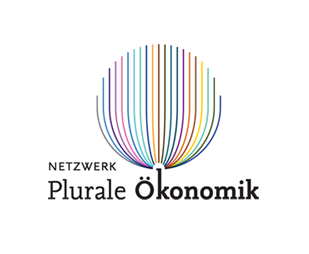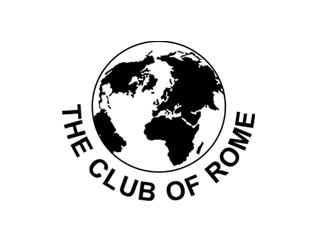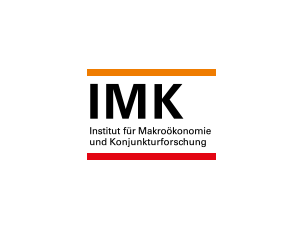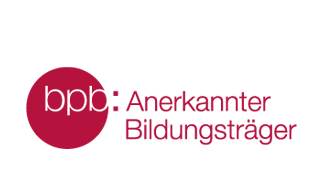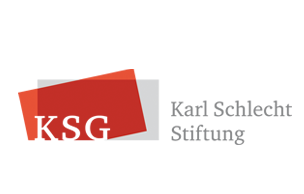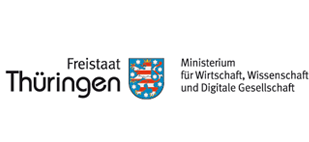Summary of Workshop #7: Marxian Political Economy
Introductory Remarks
Since Karl Marx (1818 -1883) developed his critique of political economy on the background of the debates within political economy (referring to David Ricardo, Adam Smith, and others), it is helpful to briefly introduce the main concepts of his approach in order to understand today’s discussions within Marxian Political Economy. Accordingly, the first part of this summary will address basic concepts such as the commodity, money and capital, labour power and surplus value, class society and philosophy of historical materialism, accumulation and crisis tendencies. The second part will then discuss the application of these concepts (as well as more recent concepts developed on that background) to some of today’s issues: the hegemony of neoclassical thought in economics, invisible (precarious) labor in global supply chains, the crisis of reproduction (a feminist critique of Marx), the ecological crisis, the financial crisis and turmoil within the Eurozone, degrowth, and the imperial mode of living.
Core concepts
The commodity: Following other classical political economists, Marx describes commodities as having a use and an exchange value. The use value is determined by its utility to satisfy human needs. The exchange value creates a comparative relationship to other commodities. All commodities have in common that they are produced through human labour, which is why they can be exchanged against one another as equivalents, although qualitatively different. When analyzing exchange value, we abstract from the concrete labour that was expended to produce a commodity. Instead, the exchange value is represented by the „average socially necessary labour“. To the consumer, this exchange value appears to be an intrinsic characteristic of a commodity, because the labour that actually produced the commodity is not as such visible anymore. This illusion is termed „commodity fetish“.
Money and capital: Capital in the Marxian sense is understood not as the mere advancement of money but rather as a social relation, constituting an asymmetrical power relationship. The first form of appearance of capital is the last product of the commodity circulation: M–C–M’ (M=money; C=commodity; M’=more money). Capital then is the result of the continuous, excessive circulation of money-as-capital. Money as money (C–M–C) and money as capital (M–C–M’) differ first and foremost only through their distinctive form of circulation (circulation of commodities ↔ circulation of capital). These two forms of circulation, in turn, differ in their ultimate objective. While the goal of the commodity circulation (C–M–C) is use value through money as the mediator, i.e. the satisfaction of needs (consumption: money is spent and not returned), the circulation of capital (M–C–M’) aims for the quantitative advancement of the value of money initially invested at the beginning of the circulation of capital through the commodity as a mediator (as in merchant capital or industrial capital). Accordingly, the capital circulation can be seen as ‘the restless movement’ of money in search for profits.
Similar to the commodity, also money mystifies the process and type of production as money appears to exist only as to accredit values onto commodities. However actually it is the other way around: the value of commodities is represented in an exclusive commodity, that commodity being money. This is why money is also called ‘general equivalent’. The price then expresses the exchange relation between the commodity and money-as-commodity: “The price is the money-name of the labour objectified in a commodity.” Accordingly, the price is the form of appearance in the form of money and an expression of the (exchange) value of various types of labour in production.
Labor and surplus value: When Marx speaks of labour, he refers to wage labour. In the capitalist mode of production it is necessary for the worker to be free in a double sense: free to sell their labour power on the market (rather than being a slave) and „free of capital“, i.e. not owning capital and thus being forced to earn a living through wage labour.
The value of labour is determined by the costs of the reproduction of that labour power, i.e. the price of those goods necessary to reproduce the capacity to work. It not only includes the goods (food, clothes, etc.) that the worker requires to reproduce their own capacity to work, i.e. to be able to work the following work day. Furthermore, it includes those goods that are necessary to reproduce the following generations.
The goods that a society considers necessary can vary from society to society. The very basic necessities determine the „minimum value of labour“.
In one workday, labour potentially produces more value than is necessary to reproduce itself. Correspondingly, the workday can be separated into two parts: one part is necessary to reproduce the capacity to work, the other part serves the production of „surplus value“, which is appropriated by the capitalist.
The class society (capital and labour): According to Marx and Engels, human history is a history of class struggle. In modern societies, the struggle becomes polarized between bourgeoisie and proletariat. Every kind of society is characterized by a certain mode of production, i.e. how the production is technically and socially organized. In capitalist societies, production requires capital (e.g. land, machines, natural resources) and the double free labour.
The precondition for the development of a capitalist mode of production is the development of the capital-labour relation, referring to the polarisation of the commodity market (in money holders and owners of the means of production on the one hand, and wage labourers on the other). The process by which this condition is historically produced is what Marx calls the “so-called primitive accumulation” (in reference to Adam Smith). More concretely, this process is described as the expropriation and commodification of the commons in Britain in the 16th and 17th century (e.g. the enclosure of land, colonialist expansion). While the bourgeoisie controls the means of production, the proletariat is free in a double sense: the workers do not possess anything to sell than their labour power and are - in contrast to feudalism - free to choose whom to sell their labour. The class relation is characterized by an asymmetry in power because ultimately the workers' survival depends on wage labour.
Accumulation and crisis tendencies: The inherent logic of capital and its structural accumulation leads to the global expansion of the capitalist mode of production, a process which can be described as globalization. According to Rosa Luxemburg and her critique of Marx’s theory of capital accumulation, a society's capacity to absorb the ever-increasing expansion of commodities is limited. Capitalism, therefore, has an inherent vulnerability to crisis (e.g. stemming from underconsumption/lack of aggregate demand). This is why capital must find markets outside of its heartlands by spatial expansion, commodification and acceleration: a process to which Luxemburg refers to as imperialism. Although economic processes are at its core, this dynamic ultimately rests upon extra-economic means, like military means of the state. Her further development of Marx’s theory has been taken up by Marxian scholars and serves as the starting point for concepts such as David Harvey’s ‘accumulation by dispossession’ or Klaus Dörre’s ‘Landnahme’ (see below).
Critical Political Economy in Contemporary Debates
Neoclassical hegemony vs. pluralism in Economics: Looking back at the history of economic thought, one can realise that the role of economists on the eve of the modern age was an embedded one. This is to say that economic thinkers, whether Mercantilists, Physiocrats or (Classical) Political Economists developed their economic theories within the context of the societies they lived in - thematically and methodologically. This is true for Marx’s Critique of Political Economy as well. Nonetheless, it fundamentally criticised the scientific concepts and the way economic thinking proposed by Classical Political Economy, particularly because they legitimised existing (economic) power relations in society. Central to this critique was the re-reading of Classical Political Economy’s labour theory of value which had major political implications for the emerging trade union movement. In contrast, the neoclassical paradigm emerged at the end of the 19th century as anti-Marxian thought - both in academia and politics. The subjective value theory was crucial to this de-politicization of the labour process (wage setting and justification of profits). At the same time, neoclassical thought was a methodological anti-thesis to the German Historical School that was predominantly working with a historical-inductive method.
Economics as discipline thus co-evolved under the dominance of neoclassical method, re-defining the problem of the discipline to one of ‘efficient allocation of scarce resources’. Thereby economics was isolated from its social, cultural and political contexts - a legacy still shaping much of contemporary economic thought. This isolation also de-politicizes economic relations and dynamics because economics is portrayed as expert knowledge of a ‘neutral science’.
After the financial crisis of 2007ff. the movement for pluralism in economics gained momentum through politicizing and challenging the central problem and methodology of the economics discipline. From this historic perspective, the role of political economy (embedding economic dynamics into a broader setting of society and power relations) is crucial for the movement for pluralism in economics.
Invisible work: On the basis of the concepts ‘Landnahme’ (Klaus Dörre) or ‘accumulation by dispossession’ (David Harvey), which have been developed on the basis of Rosa Luxemburg’s critique of Karl Marx’s theory of accumulation, one can understand the attacks on welfare and social security in many countries since the 1970s as the attempt of capitalists to increase their profits through squeezing wages. Cutting unemployment benefits and introducing new disciplinary measures allow forcing workers even into very precarious jobs. Many of such jobs literally go unnoticed by the broader public and stay mostly invisible for them. For instance, in Germany Amazon employs workers from various crisis-ridden countries (e.g. Spain) under highly precarious conditions through temporary contracts. Here, it takes advantage of these peoples’ difficult situation (being foreigners in Germany, often without German language skills) for exploiting them as cheap labour. In other words, Amazon is making use of a ‘transnational reserve army’ here, in order to increase its profits. Since these exploitative forms of labour often go unnoticed in public and academic discourse, we referred to them as ‘invisible work’.
Reproductive work – feminist critique of Marxian Political Economy: According to Marx's writings, the sphere of production is separate from the sphere of reproduction. Although reproductive work is a precondition for the production on markets, in Marx's terms, reproductive labour only creates a use value and has no exchange value because it is not produced for market exchange. This divide into a market-based production sphere and a ‘private’ reproduction sphere leads to the devaluation of reproductive work. Critics (especially from a feminist perspective) argue that capitalism is not only based on the exploitation of labour power in the production cycle (as according to Marx), but also on reproduction, i.e. the work such in the (private) household, maintenance and care work, that is mostly done by women. Reproductive work stays invisible in public perception and (wage) labour fights; while wage labour is given a higher status. With the commodification of care work, this divide continues in unequal payment of labour - that is usually done by women (elderly care, childcare and education in kindergartens and schools) in contrast to (historically) typical male professions. Therefore, some scholars argue, an extended term of labour is needed. Labour should also entail household, subsistence, and care work.
Marx and the ecology: The capitalist mode of production encompasses an intrinsic contradiction between capital accumulation and planetary boundaries. To put it in a nutshell: The capitalist mode of production undermines its own conditions of existence; in Marx’s own words: „It appears paradoxical to assert, that uncaught fish, for instance, are a means of production in the fishing industry. But hitherto no one has discovered the art of catching fish in waters that contain none“ (Marx 1887). Obviously, the problem is that the capital accumulation takes the reproductive forces of nature simply for granted. For current debates around the Anthropocene, this perspective is extremely valuable. It is thus criticised that the much-debated concept of the Anthropocene suggests that humanity as a homogeneous entity is responsible for climate change and the developing ecological crisis we are facing. In contrast, critical political economists have suggested to rather speak of a Capitalocene, because the rapid growth of the world’s economy, including its massive use of resources and its production of waste, is correlated with the emergence and development of the capitalist mode of production. To confront the climate crisis is thus only possible when confronting the systemic drivers of ecological appropriation and destruction, i.e. capital accumulation.
Financial crisis: What explanation of the financial crisis does Marxian Political Economy (MPE) give that is different from other explanations? MPE puts the financial crisis into a historical context of recurring crises. These are crises of capital accumulation. The basis for the most recent financial crisis was the crisis of Fordism and the Keynesian paradigm in the 1970s because there was a profit squeeze related to the strength of labour. The response of the capitalist system to the crisis of the 1970s was the „financialization“ of the economy, i.e. an extension of the capitalist mode of production into areas that were previously provided publicly. This refers, among others, to the growth of private pension systems, privatization, and an increase of private and public debt. This accumulation regime got into a crisis when people could no longer pay back their debt and thus endangered profits in the financial system. The causes of the financial crisis were thus not due to individual errors, but due to an inherent contradiction in the capitalist mode of production.
Political economy of the ‘Euro-crisis’ (on the example of Greece): Marxist Political Economy does not only offer alternative perspectives on the economy, but also on the state and – most importantly – on the interaction between the two. On the basis of Antonio Gramsci’s notion of hegemony (stressing the importance of consensus for domination in capitalist societies), the Greek scholar Nicos Poulantzas developed the concept of the state as the material condensation of the social relations of forces. In the so-called ‘Euro-crisis’, one can see how certain European fractions of capital, i.e. financial and export-oriented capital, were able to achieve hegemony (universalisation of their interests) in the struggle over the crisis-management. Accordingly, instead of fostering the recovery of the Greek economy, the ‘Troika’ decided to focus on bailing out the banks that had invested heavily in Greek financial institutions through giving Greece the money to pay back those loans, while not allowing the Greek government to use it for stabilizing its economy.
Degrowth and the imperial mode of living: Currently, a frequently discussed issue within the political economy perspective is the post-growth debate (also termed degrowth). Not only due to the ecological concerns related to continued economic growth (capital accumulation) but also given the social limits to growth, the transition towards a society no longer depending on economic growth seems both necessary and desirable. From a political economy perspective, the pressure of capital to accumulate and therefore to incorporate ever-increasing spheres of the world and our daily lives is inherent to the capitalist mode of production. A transition towards a post-growth society, therefore, requires overcoming the logic of capital accumulation (e.g., by de-commodification, re-regionalisation, downscaling, etc.).
A useful concept for understanding why the capitalist mode of production is still in place despite all the crises we see around us is the ‚imperial mode of living‘. The dominant mode of production is deeply rooted in the Western societies‘ everyday practices, consumption and lifestyle choices and institutional settings. In other words, the Global North’s convenient standard of living is based on the systematic exploitation of both labour and nature, i.e. the availability of cheap workforce in the Global South and of natural resources such as land, fossil fuels or minerals. This ‘imperial mode of living’ is gaining attractiveness amongst the global middle and upper classes rapidly. It is primarily imperial because it rests upon the appropriation and exploitation of human labour power and non-human natures. To develop truly sustainable economies is to confront the stabilising institutions, world-views, infrastructures and ‘fake solutions’ that are presented in the sustainability discourses. Thereby it would be possible to create solidarity modes of production in various spheres of life (e.g. community supported agriculture, democratically controlled and affordable public transport or other infrastructure, etc.)

